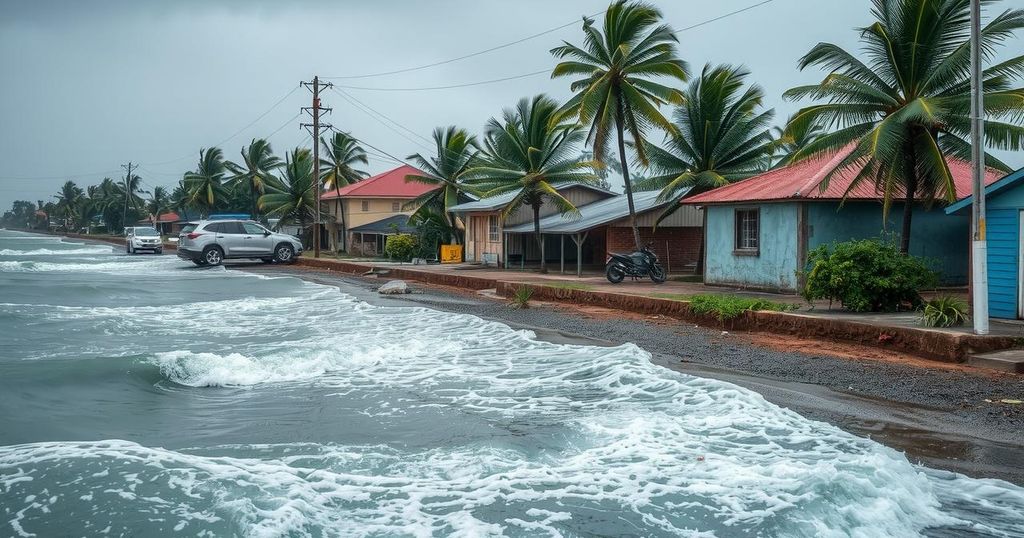Impact of Cyclone Chido on Cabo Delgado: Humanitarian Crisis and Response
Cyclone Chido struck Cabo Delgado Province in Mozambique on December 15, 2024, causing extensive devastation. With winds of 250 km/h and heavy rains, it has left approximately 687,630 individuals affected, over 120 dead, and significant damage to housing and infrastructure. The cyclone exacerbates pre-existing vulnerabilities in the region, necessitating urgent humanitarian efforts for relief and long-term recovery.
On December 15, 2024, Cyclone Chido, a catastrophic tropical cyclone, struck the Cabo Delgado Province of Mozambique, following its destructive passage through Mauritius, Madagascar, and Mayotte. This storm, classified as a Category 4-equivalent system, unleashed sustained winds reaching 250 kilometers per hour and torrential rain up to 250 mm per hour, causing extensive trauma across the region. Affected areas include districts such as Chiúre, Mecufi, and Pemba, with heavy damage to homes, schools, healthcare facilities, and various public infrastructures.
The Instituto Nacional de Gestão de Calamidades (INGD) estimates that approximately 687,630 individuals have been affected, with reported casualties including over 120 fatalities and 868 injuries. Additionally, 118,605 homes have sustained damage, alongside the destruction of 52 healthcare units and 250 schools. The impact on Cabo Delgado is particularly severe, with 509,800 residents adversely impacted, accounting for 74.13% of the total affected population. Updated assessments continue as humanitarian agencies gather field data.
The cyclone has severely aggravated the region’s already vulnerable circumstances, which have been compounded by ongoing conflict, political unrest, and a cholera outbreak, resulting in increased rates of displacement. Pre-existing economic hardships and restricted access to essential services left many residents in precarious situations. The storm’s destruction of infrastructure and disruption of basic utilities have intensified humanitarian requirements, emphasizing the necessity for a prompt and coordinated response. Recovery entails not only the provision of immediate relief but also the need for long-term strategies to restore stability and rebuild essential services for the populace.
Cyclone Chido’s advent marks a significant disaster for Cabo Delgado Province, previously burdened by a complex web of socio-economic issues, including political conflicts and health crises. The unprecedented scale of the cyclone precipitated widespread destruction and deepened existing vulnerabilities, compounding the humanitarian crisis in an area already facing severe challenges. Understanding the implications of such a disaster requires acknowledgment of its social, infrastructural, and health impacts on the local communities involved, necessitating immediate attention from local and international response teams.
In summary, Cyclone Chido has inflicted catastrophic damage on Cabo Delgado, impacting hundreds of thousands of individuals and overwhelming local infrastructure. The cumulative effects of weather-induced calamity combined with pre-existing vulnerabilities pose significant challenges to recovery efforts. There is an urgent need for a coordinated humanitarian response that addresses both immediate aid and long-term recovery solutions to revive the affected communities in this crisis-laden region.
Original Source: reliefweb.int




Post Comment